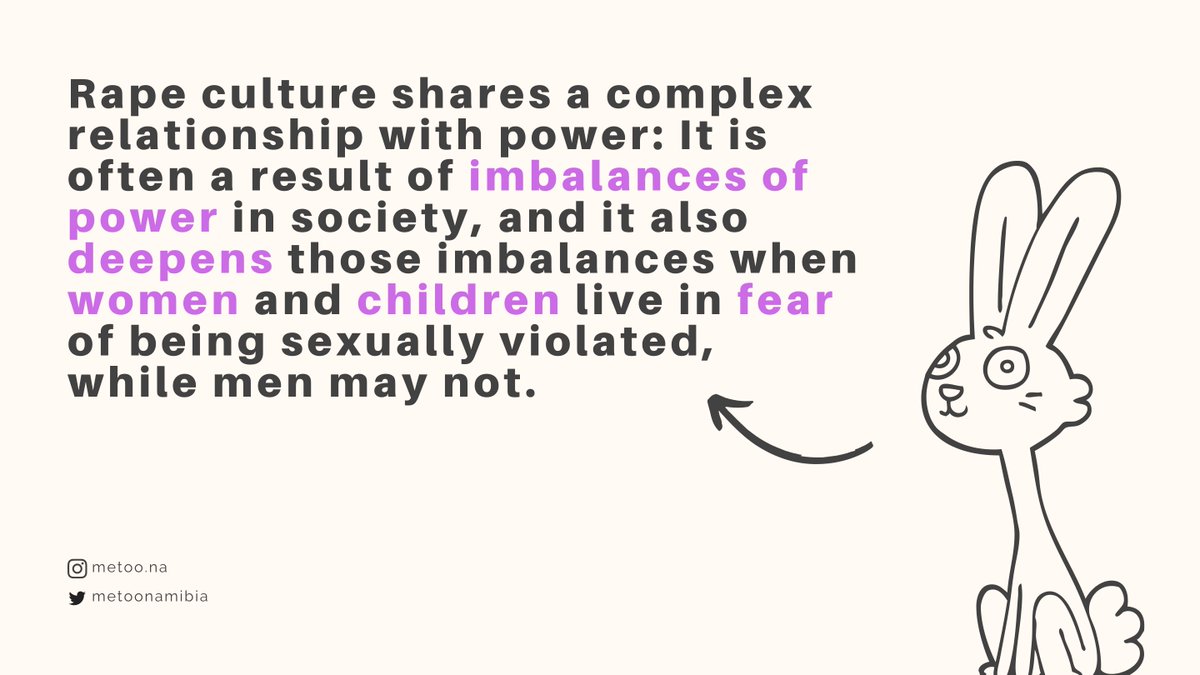While we agree that we need to do more in order to fight the sexual violence that terrorizes our communities, we would be remiss to ignore the impact that the social media conversation, as well as #MeTooNamibia has had on our people.
https://twitter.com/Our_Namibia/status/1170950606196039680
Since inception in May, we have (co)-hosted four conferences on sexual violence, assisted various survivors in opening cases and receiving psychosocial support, convened an association of organisations willing and ready to assist more survivors 1/2
...and most importantly, started important conversations on sexual violence, consent, victim blaming and shaming, toxic masculinity and related matters. 2/2
We hold the strong opinion that people’s thoughts translate into their actions. For this reason, we believe in the power of conversation— in the power of threads, engagement and discussion on social media.
• • •
Missing some Tweet in this thread? You can try to
force a refresh























